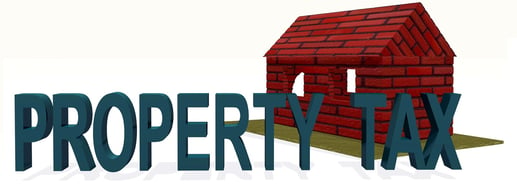When you are filing a DeKalb County property tax assessment appeal, you should know the basic terms especially regarding assessment and appraisal. While the two are often used interchangeably, there are essential differences that taxpayers should know and that tax consultants will usually tell their clients.

Assessment
The assessed value is the monetary value placed on a real and personal property by the tax assessor in a county, city, or town for the main purpose of determining the property tax due for the taxable period. The assessment, in Georgia, is 40% of the fair market value estimate. An entire county can be assessed during the year, usually within a 4 to 12-month period, with the values determined by the staff assessors; the property values are typically arrived at through physical inspections and analysis of market data. The combined assessed values for all the county’s property will be used in the calculation of the tax rate.
Each year, the county may reevaluate the tax rate based on the amount of money necessary to sustain county operations. As a result, the tax rate may change from one year to the next. If the county assessments remain the same but additional revenue is needed for some reason the tax rate will be increased. If assessments rise the county will get increased revenue without an increase in tax rate.
The DeKalb County property tax authorities will usually consider a reassessment if and when the assessed values become so outdated as to result in tremendous inequities within the taxable real and personal property values. Indeed, the county authorities will perform an in-depth sale ratio analysis since the process completing a reappraisal must warrant its cost.
Appraisal
The appraised value is usually related to the fair market value of the real and personal property. The appraiser uses the sale prices of similar real property sold recently and then makes adjustment for the inherent differences between the subject property and the similar property being used for comparison. The certified professional uses several methods in determining the subject property’s appraised value, namely, market approach, cost approach, and income approach (i.e., used on income-producing property).
An appraisal report produced by the certified appraiser is often used for property being financed or refinanced although it can also be used for other purposes.
Use of Appraisal
One of these other purposes is in a winning DeKalb County property tax appeal. This is especially true in binding arbitration, a venue available only for appeals related to real property. You must inform the Board of Tax Assessors (BTA) regarding your preference for this venue in your formal letter of appeal.
You should receive an acknowledgement letter about the BTA’s receipt of your appeal letter, which will also contain information about the required documents. Among these documents which should contain the subject property’s appraised value.
If you don’t have a recent appraisal performed for another purpose, such as a refinance, you will have to pay for the services rendered by the certified appraiser in the course of preparing your property’s certified appraisal report. The report must have a date close to January 1 of the taxable year for it to have a positive effect on your appeal. The effective date of appraisal in Georgia is January 1 every year. For example if the appraisal is made for a 2016 appeal, the effective date of the appraisal should be on or before 1/1/16. The certified appraiser can perform a retrospective appraisal that conforms to the January 1 date.
Your failure to provide the board with the certified appraisal report within the strict 45-day deadline will result in the termination of your appeal. The result: The original assessed value as determined by the DeKalb County property tax assessor will be considered as the subject property’s taxable value for the taxable year.



